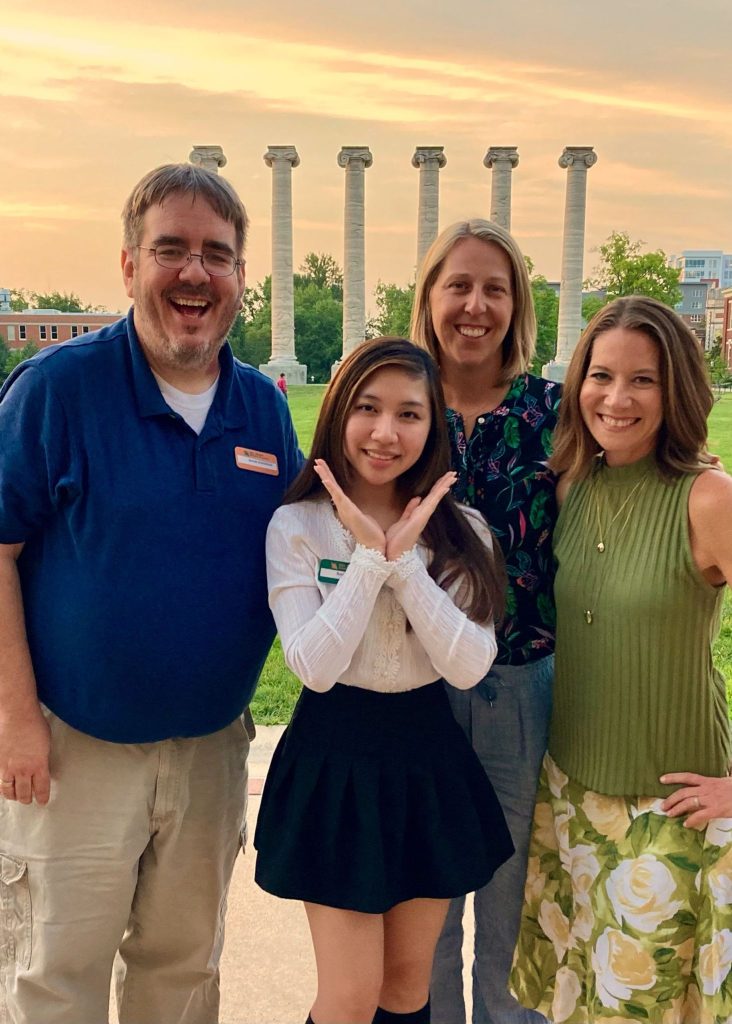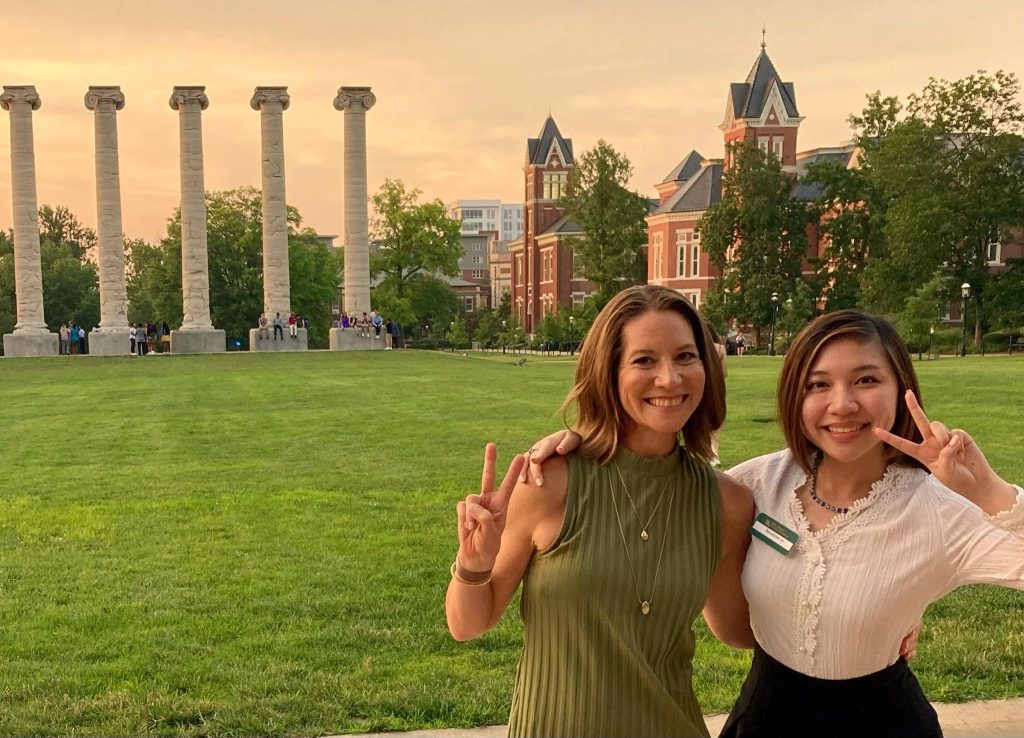Published on

Sometimes people get Mizzou Academy and Missouri Scholars Academy mixed up.
“It isn’t unusual at a conference for someone to stop by the Mizzou Academy table looking for information about the Missouri Scholars Academy,” said Dr. Kathryn Fishman-Weaver, executive director of Mizzou Academy.” Luckily, we can usually answer those questions, as well.”
Mizzou Academy is the online lab school within the College of Education and Human Development. Serving over 7,000 students annually, Mizzou Academy provides elementary, middle, and high school programming to students around the world.
The Missouri Scholars Academy (MSA) is a summer program for academically gifted rising high school juniors from across the state of Missouri. This unique three-week learning experience was founded in 1985 and provides programming to 300+ gifted students annually. MSA is coordinated by the University of Missouri’s Honors College.
The MSA and Mizzou Academy Connection
The connection between the two programs extends beyond naming and semantics.
“So many of our faculty have taught at MSA and a couple were scholars themselves,” said Fishman-Weaver. “It’s hard to explain, but teaching at MSA is a transformative experience. The fact that so many of us have that shared experience has an impact on our approaches to teaching and learning.”
Brian Stuhlman, who serves as both the middle school coordinator at Mizzou Academy and as the program coordinator at Missouri Scholars Academy, is one of these faculty members. Stuhlman was an MSA scholar himself, then later an RA, and he has spent the last 20 years on faculty at MSA. While MSA and Mizzou Academy have long shared faculty, because of Stuhlman’s recent advocacy, they now share students, too! Stulman’s advocacy led to Mizzou Academy nominating and sending their first scholar to MSA this year.
Congratulations to Rosalynn Le!
Rosalynn Le is the first scholar to attend MSA from Mizzou Academy. She was accepted earlier this spring and has just returned home after a wonderful summer learning at MSA. Le, who studies with Mizzou Academy through the online program, says she loved the learning environment at MSA. In particular, she was struck by the “room teachers gave us to fail.”
“It let me explore my interests without fear. We were treated with trust and respect, and we were given many opportunities every day to learn and experience,” said Le.
Stuhlman noted that every time he saw Le she “was smiling, having a good time with peers and enjoying the many opportunities that the Academy had to offer.”
Congratulations to Karen Scales!
In addition to celebrating Rosalynn Le, the 2023 Missouri Scholars Academy program also gave us the opportunity to celebrate Karen Scales, who was recognized on Teacher Appreciation Day. Scales serves as the Division Chair for Language Arts at Mizzou Academy and is a long-time supporter of gifted and advanced studies for high school students. Le nominated her for this honor.
“When I first started AP Lit taught by [Ms. Scales], I would initially get upset by getting certain grades back, but then after reading her criticism, I’d end up finding her grading generous,” said Le. “She’s really helped me see where and how to refine and improve my writing. She’s been able to push me to do better in a way that’s motivating. Even more than that though, her criticism is genuinely easy to understand and I never feel confused on how I should apply it. In general, she’s just incredible at teaching, and I really admire that. ”
Scales shares that Teacher Appreciation Day was an opportunity to celebrate learning and laughter. She was “profoundly honored” to be nominated by Rosalynn and recognized MSA as a place where meaningful relationships can be built amongst students and teachers.

Gifted Education and Mizzou Academy
Mizzou Academy and Missouri Scholars Academy share similar names, as well as faculty and staff. “They also share common values and a deep commitment to expanding access and equity in gifted education,” said Fishman-Weaver.
Stuhlman loves his work in gifted education and sees it as filling an important gap in services. “I choose to work in gifted education for a number of reasons,” says Stuhlman. “Gifted students are often surprisingly underserved in schools. I want to advocate for gifted students and give them opportunities to reach further for their full potential. I also love all the varieties of gifted learners; they are both interested and interesting. On a daily basis, I’m inspired by their curiosity, compassion, creativity, and courage.”